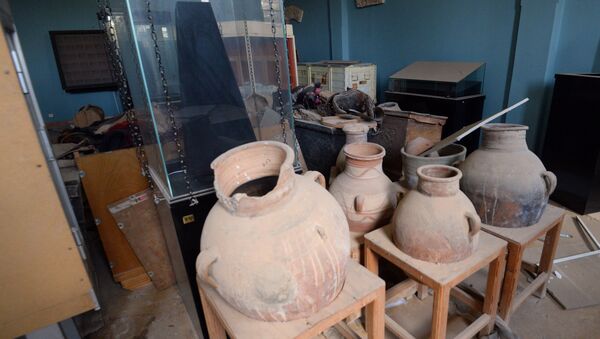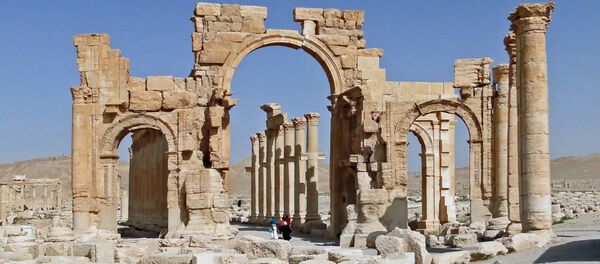"The main centre for the smuggling of cultural heritage items is the Turkish city of Gaziantep, where the stolen goods are sold at illegal auctions and then through a network of antique shops and at the local market," Vitaly Churkin’s letter states.
The letter asserts that artifacts including jewelry and coins are delivered by Turkish transport companies, sold in shops opened on the Turkish-Syrian border, and then arrive in Izmir, Mersin and Antalya where documents are forged to hide their origins.
Daesh’ smuggling operations are said to be organized by its antiquities department, part of the caliphate’s so-called ministry for control of natural resources, under the leadership of Abu Sayyaf Iraqi.
The disclosures come after the RT broadcaster uncovering a trove of documents last week revealing details of Daesh' illicit trade in looted antiquities with Turkey through the so-called ministry's department of artifacts. Two weeks ago, the broadcaster documented further proof of the terrorist group's fighters enjoying unrestricted travel across the border and selling oil to Turkey.
Ankara officially denies having links to the IS, a group outlawed in multiple countries including Russia.




